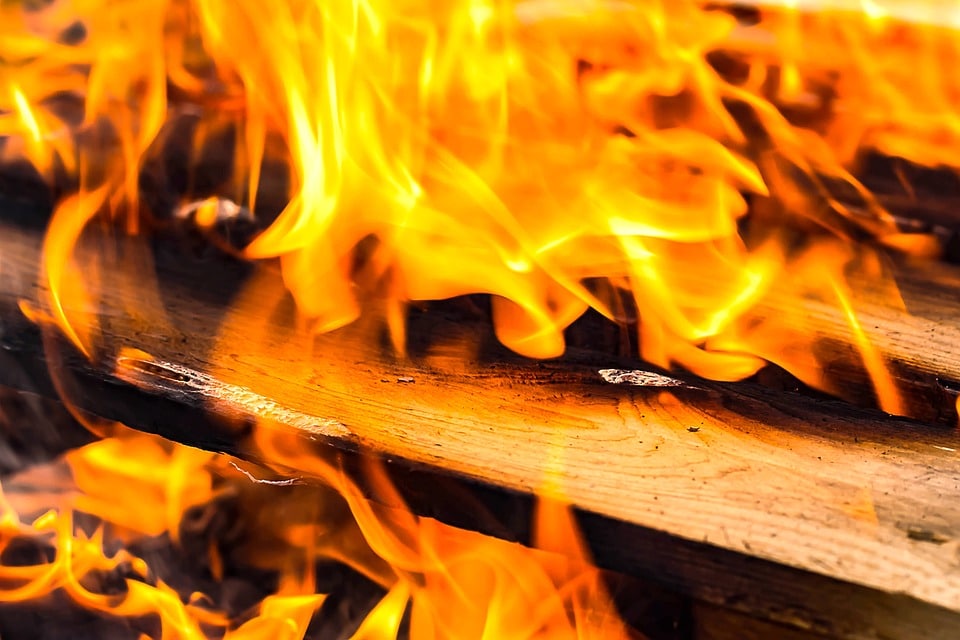A kitchen is a happy place in most households. It’s where family members gather to have light-hearted conversations with each other, prepare meals, or enjoy a quick snack. Unfortunately, the kitchen is also a space where a house fire is most likely to start.
Residential cooking is one of the leading causes of fire-related casualties and the root cause of most kitchen fires. In fact, nearly 50 percent of house fires that begin in the kitchen are caused by cooking that’s left unattended on the stove.
The good news is that your kitchen doesn’t need to be a firetrap (and you don’t need to be afraid to cook). There are a number of steps you can take to ensure that your kitchen—and the people in it—stay safe. Make sure to do the following.
1. Never Leave an Open Flame Unattended
Always avoid walking away from the kitchen when preparing meals on the stove. Resist the urge to complete other chores that require you to leave the room, especially when there’s a gas burner with an open flame. Additionally, don’t let home entertainment distract you from your kitchen-related responsibilities. If you’re having a house party, let the guests know that it might take you a while to come back from the kitchen. After all, diverting your attention from the stove to catch up on old times can bring a much worse time for your home.
2. Be Mindful of Items Around the Stovetop
Oven mitts, cords, towels and even curtains could easily become enveloped in flames if present near a hot burner. We suggest keeping flammable items at a good distance from the stovetop. Also, use caution when using towels for removing a pot from the burner. We suggest using an oven mitt over a towel as it’s much less likely to catch fire. If you still prefer using the latter, make sure it doesn’t come in contact with the burner. Move the handles of pans and pots on the stove “inward” to prevent accidents.
3. Wear Appropriate Clothing
A lot of people aren’t aware that the clothing they wear in the kitchen can prevent fires, so make sure to dress right before you begin to prepare lunch or dinner. Moving long, flowing sleeves over an open flame is a recipe for failure as the material could get caught up in the flames. You should also avoid wearing synthetic materials while cooking. These can melt on your skin if they catch fire, so go with a different material that is much safer in the kitchen, such as aprons made of cotton.
4. Prevent Cooking Oil from Overheating
Whether it’s olive, canola or coconut oil, never allow it to overheat. Smoke from cooking oil is a sign that a fire is about to surface. Also, avoid throwing hot grease into the garbage. While the grease might not be on flames, it can cause the items in the garbage to burn. A better option is to let the grease cool down and dispose of it in an old can or jar with a lid.
5. Unplug Appliances
Make it a habit to unplug the toaster, electric skillet, slow cooker, Instant Pot, deep fryer or rice cooker after use. Also, avoid using appliances that feature a frayed cord. Electrical items should never be plugged into extension cords. Rather, they should feed directly into power outlets. Plus, you should immediately replace any old/faulty appliances as they could be increasing the odds of a fire breakout. If an appliance has passed the seven-year mark, it might be time for an inspection or an upgrade.
6. Avoid Having Too Many People in The Kitchen
A busy kitchen not only leads to a mess, but it also raises the risks of accidents that can result in a fire. Fun and games can lead to someone forcing their way past the cook and unintentionally knocking over a hot pot or pan. Let guests and family members (especially teens and children) know ahead of time that they should take what they need from the pantry or kitchen before you start cooking because you don’t want any disturbance while you’re in the zone. You can even put up a “do not disturb” sign on the kitchen entrance until meals are prepared.
7. Don’t Set the Cooking Temperature Too High
Did you know that the ignition of food is one of the leading causes of kitchen fire? Whether baking, broiling, or frying, give yourself enough time to cook so you don’t have to crank up the oven or stove temperature. Observe the cooking temperatures in the recipe, and don’t let the flame loose when using a gas stove. While you might be tempted to cook fast and furious when a family member is seized with hunger pangs, being patient will significantly reduce the risk of kitchen fires.
8. Inspect the Ventilation
Frequently check that the ventilation of your kitchen (like fans or range hoods) are functioning properly. This is critical if you’re using a gas stove. Avoid any leaking gas from accumulating as it could ignite a fire in the kitchen. Also, avoid fitting a smoke alarm in or near the kitchen as it could easily go off accidentally, or get one that comes with a hush button. This allows you to silence the alarm instantly, so you’re not tempted to uninstall or invest in a new one.
Conclusion
Taking these measures will help you effectively avoid a kitchen fire. However, accidents could happen even when you’ve taken every precaution available. If your kitchen has been damaged by fire, contact a Davis Country fire clean up and restoration company. Let us take the burden of kitchen fire damage restoration off of your shoulders. Our staff works efficiently and safely to eliminate the presence of biohazardous material and debris after a fire. If you’d like to see your kitchen as the safe place that it once was, contact us today for assistance.

